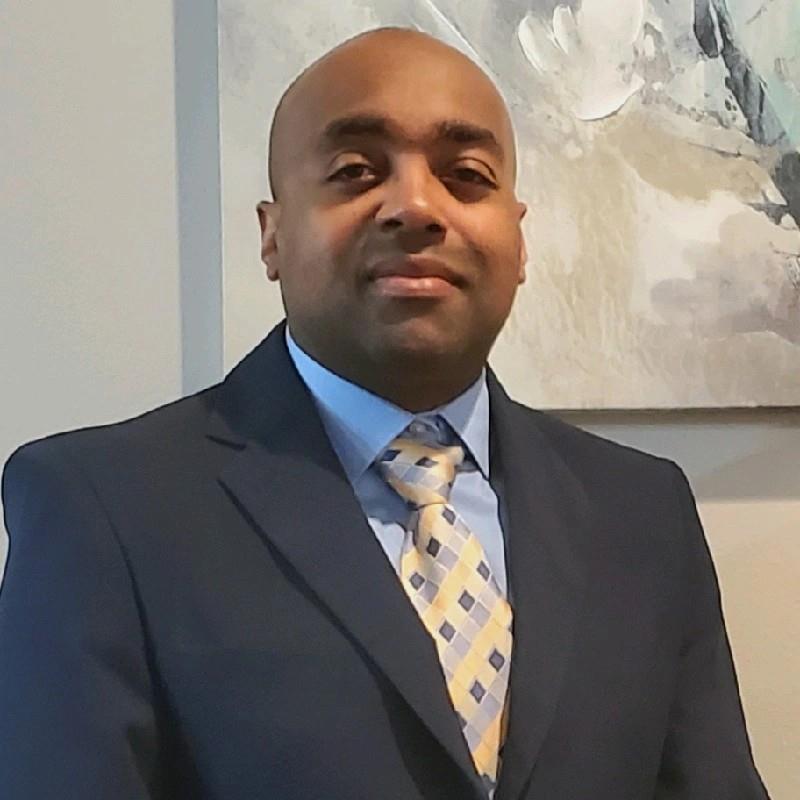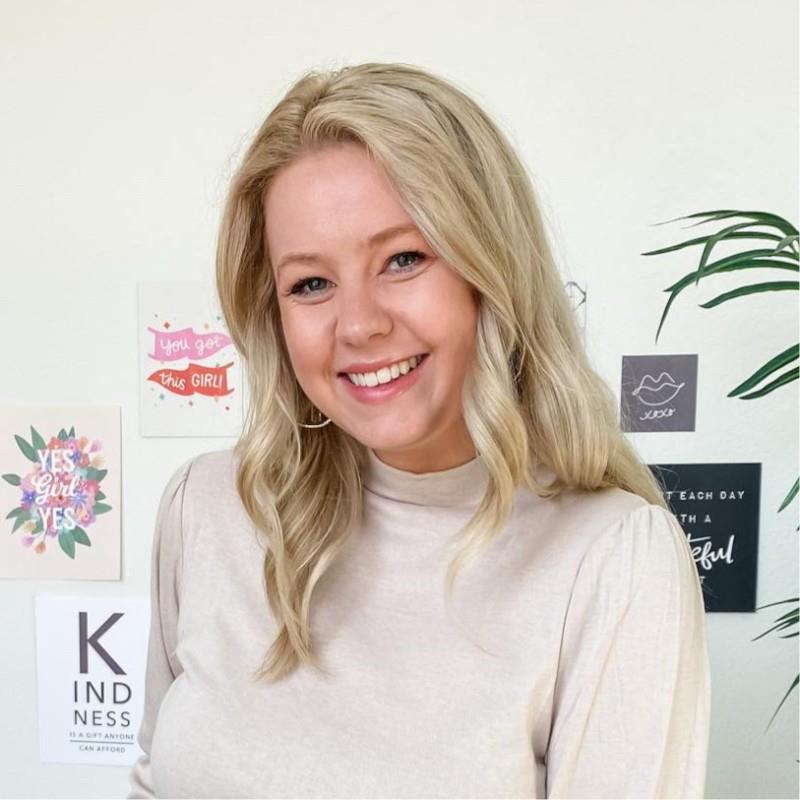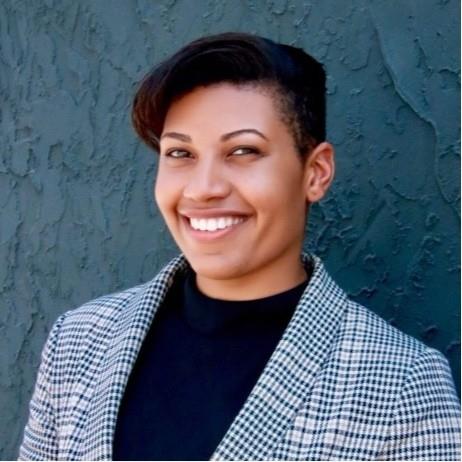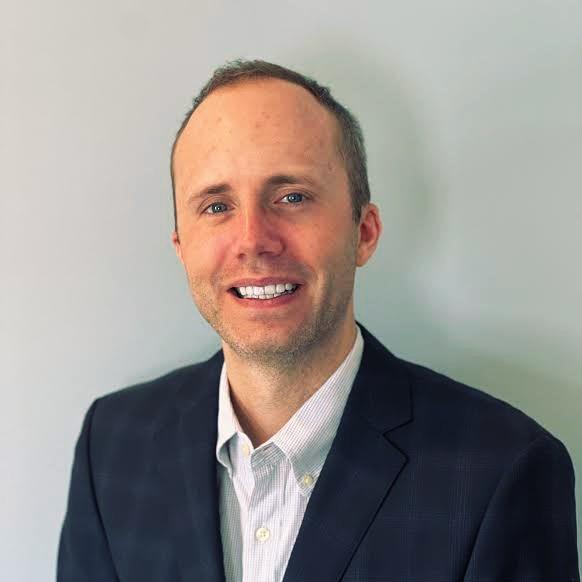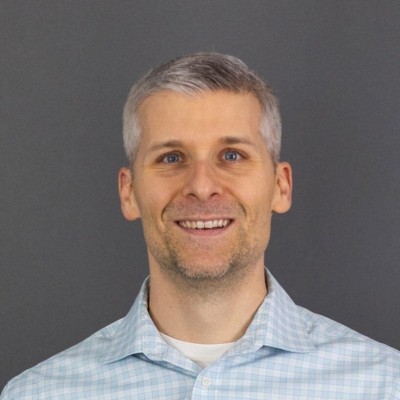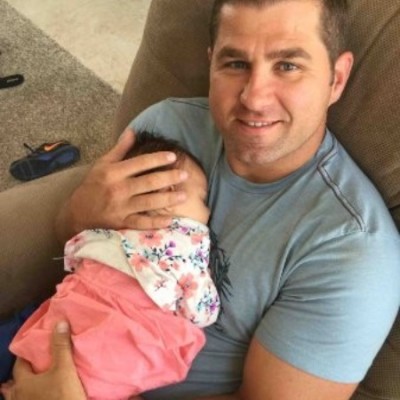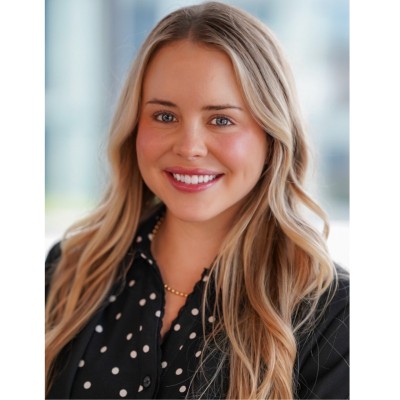How to Succeed in the Medical Device Industry
In this episode of the Medical Sales Podcast, Samuel Adeyinka sits down with Kat Hurd, medical device sales coach and former Fortune 500 leader with 15 years of experience. From athletic training to rep of the year, to VP-level leadership and now founder of her own coaching business, Kat’s journey is proof that you don’t need a biology degree to thrive—you need grit, process, and the right mindset.
Kat shares the pivotal moment that led her to leave corporate leadership and launch her coaching business, why so many reps fail without a clear sales process, and the three biggest gaps she sees holding reps back: lack of process, lack of ownership, and inconsistent follow-through. She also unpacks the truth about work ethic, limiting beliefs, and how managers can spot red flags before making a bad hire.
Whether you’re trying to break into med device, hit President’s Club, or grow into leadership, this episode is packed with real-world strategies from someone who’s been a top rep, a respected leader, and now a coach guiding the next generation of sales professionals.
Connect with Kat Hurd: LinkedIn
Connect with Me: LinkedIn
Love the show? Subscribe, rate, review, and share! Here’s How »
Want to connect with past guests and access exclusive Q&As? Join our EYS Skool Community today!
Watch the episode here:
Or Listen to it on your favorite platform:
Episode Transcript:
00:05 – Samuel Adeyinka (Host)
Hello and welcome to the Medical Sales Podcast. I’m your host, samuel, founder of a revolutionary medical sales training and mentorship program called the Medical Sales Career Builder, and I’m also host of the Medical Sales Podcast. In this podcast, I interview top medical sales reps and leading medical sales executives across the entire world. It doesn’t matter what medical sales industry from medical device to pharmaceutical, to genetic testing and diagnostic lab, you name it. You will learn how to either break into the industry, be a top 10% performer within your role or climb the corporate ladder. Welcome to the Medical Sales Podcast and remember, I am a medical sales expert, sharing my own opinion about this amazing industry and how it can change your life. All right. So, kat Hurd, how are you today?
00:54 – Kat Hurd (Guest)
I am good, Samuel. How are you doing? Thank you for having me.
00:57 – Samuel Adeyinka (Host)
Absolutely Fantastic to have you, why don’t you tell the audience who you are and what you do?
01:01 – Kat Hurd (Guest)
So my name is Kat Hurd. I am a medical device sales coach, so I coach salespeople, sales leaders, specifically in the medical device space, and I spent 15 years in the space myself. So my career has been Fortune 500 companies, small startups, bringing organizations to the US. I’ve led big teams, I’ve led small teams and I had an incredible career. I was rep of the year. I had multi-million dollar territories, multiple president’s clubs six to be exact and I took all of that skill and insight and knowledge to build a business to help other reps do the exact same.
01:39 – Samuel Adeyinka (Host)
Exactly, kat. We did our research. What I love about your career is from what we could see. You started. You didn’t really start in biology or anything like that. You started in athletics. Then you became a rep. You murdered it as a rep. Then you became a manager. You performed there. Then you went to become an area business director. You literally hit every level of management all the way to second line leadership. Then you finally started your own company. I love that the fact that you have all that experience. But before we get into all the details, what I want to know is what was going on as an area business director that made you say you know what? Now I think I want to start my own thing and I want to teach people how to do the same.
02:20 – Kat Hurd (Guest)
Yeah, absolutely For me. It’s silly to say, but it was hitting that milestone. So I wanted helping reps be better reps and helping leaders be better leaders was something I had wanted to do for more than a decade and it had been on my heart, on my mind. But I also felt like I wanted to hit the appropriate levels to really not just have the street cred but have the insight, have the abilities, have the strategy and the tactical knowledge to actually be able to help people really scale really make a difference in their careers.
02:51
So I hit that VP level. So I was an area vice president at Saluda Medical and then I spent a year in that role. I learned everything that I could and honestly, we really Saluda Medical for me was always going to be a three-ish year play, a two to three year play Because from a startup standpoint, I looked at it as the opportunity to go from big company, where I had so many resources, to go to small company and look at what is it like to have to be super scrappy to not have the support, not have the resources.
03:20
And it was really that moment of okay, I’ve got the VP title, I have the insight and knowledge, I’ve got the VP title, I have the insight and knowledge. I’ve now helped scale and commercialize an organization. My team was doing really well and it’s funny to say, but I was like staring down the barrel of 40. And so I thought, okay, what do I want this next half of my life to be like? And I, yeah. It just felt like the right time, the right moment, the right conditions.
03:42 – Samuel Adeyinka (Host)
Okay, okay. So was it more of a? I don’t know what I want to do. I’m going to stop doing this and I’m going to figure it out. Or was it more of? I know I want a coaching business. I’m going to stop doing this and start it.
03:55 – Kat Hurd (Guest)
It was a hundred percent. I know I want a coaching business. I’m going to stop this and start it. Yeah, my clinical my first clinical specialist that I had on my team when I was a territory manager. When I told him that I was leaving MedDevice, his first question was so are you going to do it?
04:11 – Samuel Adeyinka (Host)
Because he knew From the time when I was a territory manager.
04:15 – Kat Hurd (Guest)
I had dreams of creating courses and creating opportunities for better reps. And so yeah, it was always in the master plan.
04:23 – Samuel Adeyinka (Host)
Wow, that’s fascinating, but we got to know how it all happened, you know. Take us to the beginning.
04:29 – Kat Hurd (Guest)
Yeah, so I like training. I know not everyone’s, you know, as familiar with that role. So I was taping ankles, I was rehabbing the injuries, I was doing all the things for athletic teams got my master’s in it, and then I really just had this moment where it was like I have all this insight and knowledge. So my background isn’t, to your point, like the biology or the like more science-y sciences.
04:50
I was the physical sciences in human physiology, anatomy. I knew so much about the human body and I had a girlfriend who was also an athletic trainer, who went into MedDevice, and she connected me with the person that helped her get in right. It’s always the connections that you have, and I’ve had a few other conversations even earlier on in my undergrad career just trying to figure out cause, truth be told, I wanted to leverage the skills that I had. I knew I was good with people and I also wanted to have an opportunity to have, you know, some financial runway, and as an athletic trainer, I was unfortunately going to be making like 30 to $40,000 a year working my tail off, and so I thought there’s got to be a better way.
05:34
This individual’s name is Hap Peterson, so he was the area director at Boston Scientific. At the time. He happened to live in Iowa where I was for my for my graduate school and my undergrad, but so MetHap sat down with him and I just I always tell this story, cause it’s really funny he brought one of his regional managers and this is, you know how different it was to crack into med device.
05:56 – Samuel Adeyinka (Host)
And obviously that’s your arena. It was so different than it is now.
06:00 – Kat Hurd (Guest)
There weren’t the support and resources. It really was just like you had to get real scrappy. And I sat down with them and they were at Boston Scientific and so I tried to do my research. But let me tell you I learned very quickly I didn’t do good enough research because they started drawing anodes and cathodes on the tablecloth. It was one of those Italian restaurants like paper. They pulling out the crayons and pens. You know talking about crazy things. They’re like rents are making big money you can make $700,000. And I’m like listen, I just want an opportunity to do something with my insight and knowledge and help people at the same time. And so, long story long, they had a few opportunities. I told them I’ll go anywhere and I will go in. Any division Doesn’t have to be your division. I will do Arizona, site unseen in 2010. I’m still here in Arizona. I love it. I’m very grateful, but I was ready to go to like the middle of no more Kansas if I needed to, to bring it Right Right.
06:54
Yeah.
06:54 – Samuel Adeyinka (Host)
Wow, okay. So what did your company focus on? Who’s your target audience?
06:59 – Kat Hurd (Guest)
Yeah. So I essentially support people from the start of their medice journey. So once you’re in, then all the way up to that VP level and the real focus actually I support past that, but where my real focus is, I was like I’ve got a chief growth officer and a few other C-suite clients that I work with as well. So the way I do that is a variety of different programs that I run for my early to MedDevice folks. That’s a three-day workshop called the Successful Sales Rep and then a program called the Path to Presidents Club. That, essentially, is your blueprint for how do you build a territory that performs right. And then I have programs for high-performing sales reps. I do one-on-one coaching with them as well, and then, of course, sales leaders.
07:44
So the goal of it being that I have not just the experience, of course, that I’ve done all of the roles before, but programs and offerings that can support you at any point. Because the thing that and Samuel, I know you get this right Because you are working with helping folks get into device on a daily basis and you know the power of the right support at the right time Right. And it truly is having someone not just that has done it before, but that has coached people to do it before, and I think that was what was so beautiful about my transition into coaching. I get asked all the time why did you leave such a successful career? I was on a podcast with a physician a few weeks ago and he’s like you were on your path to be a CEO, like why leave Right.
08:27
Like, yeah, I was, but why not take the opportunity, Like as as a woman in men’s device? As a woman who was always like the only one in the room, I saw that there was a gap in resources for people to perform well, not just for women, for everyone to perform well, and so I really made it my mission in starting my business to build those resources.
08:49
And it’s been fun. I mean I started to answer your question real directly. I started with those folks like transitioning into leadership and then built the program. So my successful sales rep program and path to president’s club because they saw that that group of reps as well was just such a gap right, your company prepares you from a clinical training standpoint. They might give you a few steps to follow from a sales cycle standpoint.
09:12 – Samuel Adeyinka (Host)
Right.
09:13 – Kat Hurd (Guest)
Then they push out the door right.
09:15 – Samuel Adeyinka (Host)
And it’s up to you, it’s up to you to figure it out.
09:17
Yeah, to figure it out, and hopefully you have a great manager and hopefully you’ve got great customers and great resources, but in the absence, I hope you’re enjoying today’s episode and I want to let you know our programs cover the entire career of a medical sales professional, from getting into the medical sales industry to training on how to be a top performer in the medical sales industry to masterfully navigating your career to executive level leadership. These programs are personalized and customized for your specific career and background and trained by over 50 experts, including surgeons. Our results speak for ourselves and we’re landing positions for our candidates in less than 120 days in top medical technology companies like Stryker, medtronic, merck, abbott you name it.
10:12
Would you run an Ironman race without training and a strategy? You wouldn’t, so why are you trying to do the same with the medical sales position? You need training, you need a strategy and you need to visit evolveyourassesscom, fill out the application schedule some time with one of our account executives and let’s get you into the position that you’ve always dreamed of, and even the experience of not being sure if you can take it to your manager because you don’t want to look bad or you feel some kind of way. Where do you go to get that kind of help? If you could sum it up into three points, what would you say are the common missteps you see with sales reps.
10:46 – Kat Hurd (Guest)
I mean, the first and foremost is having a clear sales process. Right, they say process and systems, and so you could call those as two things or one thing. Right, I say process and systems.
10:54
And so you could call those as two things or one thing and the way I describe it, because I think process and systems gets lumped into one. But there are two distinct things, especially when they come to selling. And the first process is the recipe. Like if you’re in the kitchen, you follow a recipe, right, you’ve got you know what you’re going to do to make your chicken for dinner, and that’s kind of the steps that you would take to sell your product. The system is how are you actually doing it? So when you’re in the kitchen, where are all the tools? What system do you have to make that, instead of a 45 minute cooking exercise, a 15 minute cooking exercise with a consistent outcome each time? Right? And so you have to know both the steps that you’re going to take and take them very consistently, get very, very good at them and the systems to support you doing that work. So what are your resources? That’s you know. I will say, first off, not having a sales process. I see that all the time. What are the? What are the signals?
11:48 – Samuel Adeyinka (Host)
that this person clearly does not have a sales process.
11:52 – Kat Hurd (Guest)
Well, I mean, first off, I’ll just ask, like who you know it’s the first question I ask when I teach the day on sales in my workshop. I’m like who here has a sales process that they follow? And it’s probably about 50%. I can also sift it out because you’ll get folks that say, oh, I have a sales process. I’m like, tell me about it, because it should be a series of steps that you take yourself and your customer through, because it should be a series of steps that you take yourself and your customer through right. And when you take it through those steps, they become consistent, they become repeatable and you get better at them. Just like you coach folks on interviewing right when they’re answering the question over and over again, when they’re refining. That’s the power, that’s the true power of when you see an exceptional salesperson. They have refined their message, their approach and the way they do things so precisely because they do the same things over and over again, but better each time.
12:43
Okay, right, so that the lack of process you can sift out pretty quickly. If someone, when you say, tell me how you sell, it’s like, oh, you know, I look to just understand the customer. Okay, then, what you know, and it’s just like you can see that pretty easily. Yeah, yeah, so certainly just the sales process piece of it is gap number one right.
13:02
Building the process and the systems. The other piece that I see is really not prioritizing what the full customer experience is, because you have to so much right now. There’s so much noise, there’s so many medical devices, diagnostic products, tools these physicians can use, depending on what arena you’re selling, and drugs that you can prescribe that if you get a yes right, that one yes is like the biggest, like that’s the true gold in sales, and what I see folks doing is like you biggest, like that’s the true gold in sales. And what I see folks doing is like you get the yes and then you move on to the next.
13:38 – Samuel Adeyinka (Host)
Instead of following through.
13:40 – Kat Hurd (Guest)
You have to create this experience in this feedback loop, right? You think about like yesterday I went to McDonald’s for Diet Coke. And I you might be wondering why I’m talking about this. I promise there’s a purpose here. But so I went to McDonald’s for Diet Coke and I sat in the drive-thru and I had gone a week before and they were out of Diet Coke, which, like McDonald’s being out of Diet Coke, is like does the ocean have water? Like it doesn’t quite make sense.
14:04
But in that moment I thought to myself gosh, I shouldn’t even be here because I don’t know that they’re going to have it right. They didn’t have their shit together again the first time. Are they going to have it together this time? Well, thankfully they did. But that’s what’s going through your customer’s head. If the experience that they have with you in step one of them saying I’ll use your product or I’ll place an order or I’ll use this device isn’t this smooth, cohesive experience, they’re not going to come back. Or they’re going to come back and do what I did sit in the drive-thru and think, should I really be here? And then, when the competition comes in and you haven’t done your follow-up or you haven’t created that clear, cohesive experience for them, they’re going to be a lot more willing to say you know what? I gave that order to Samuel, but Kat’s here, and so let’s flip that and we’re going to use this device or this drill this time. Yeah, yeah. So it’s your process, it’s your experience.
15:00
And then the last piece in this one sometimes it comes across to folks is like well, that’s a no brainer, but it’s the ownership that you take, right, and what I mean by that is so often I see it in you know. Oh, I’ve already followed up a few times. I don’t want to push. Or oh, I did this for the customer, or we did this to mark. You know, mark do some market development, but they already know, so I’m not going to bother them with it. But owning your impact is so important If you think it ties into the customer experience, if you think you’re going to be able to do something differently to change that customer’s thought patterns, beliefs, perspective, and you aren’t clearly and consistently owning what you’re doing, why you’re doing it and why it matters to them.
15:46 – Samuel Adeyinka (Host)
So talk to me a little bit more about that. What do you give me a little bit more about? What do you what it looks like to own yours, to own it?
15:53 – Kat Hurd (Guest)
Yeah, it depends, and so I’ll just share an example that would be kind of an average. Like you’re going to a physician who’s doing a trial on a new software, right, a new robotic software, and so when you do that trial you’re going to have a trial end date. Now if you think to yourself well, I’ve already talked to purchasing they know when the end date is purchasing, they know when the end date is, the physician knows when the end date is, and so you let that product, let that software, be pulled on the trial end date without communicating again to that physician, right To say, hey, I know you already know this, but as a reminder, we are three days out from our end date for this trial. I have had a conversation. Your support is really important. If this is something that you want, here’s the things that you can do Step one, step two, to help drive this forward. It will be pulled on the third and then from there I’ll continue to keep you updated as we go through the contracting and the purchasing process with your team.
16:54 – Samuel Adeyinka (Host)
So almost like due diligence.
16:56 – Kat Hurd (Guest)
Yeah, that’s a great alternative to call it. Yeah, it’s due diligence, but really owning the totality, because oftentimes I hear from reps like, oh, I don’t want to come across as salesy, right, that’s a big one.
17:08 – Samuel Adeyinka (Host)
Yeah.
17:08 – Kat Hurd (Guest)
Or I’ve already followed up. I don’t want to be too pushy, but the reality is for us, we’re our own main characters. Our product, our tools, whatever we’re selling, that’s our main character. It is not for your customer. They have a million things that they’re thinking about when they’re treating their patients. If you’re selling into purchasing or into the C-suite, they’ve got a ton of other administrative things that they’re working through. So your follow-up, when done appropriately, is actually just sales in service of their end goal, right. And that’s really when you keep that in mind and when you own that you’re the one moving it forward. You’ve got to own that you’re pushing the football down the field time and time and time again with each play and when you do that with the energy of like both enthusiasm and this center around, like service to it, of I’m doing this not to be pitchy, right, but to be supportive of the thing that they said they wanted.
18:05 – Samuel Adeyinka (Host)
So when you so taking these top three when you’re working with anyone? So that brings my next question, that we also have MedCell’s bootcamp. We work with reps to get them to President’s Club and we see some challenges. But I’m very curious to what you see. What is, what would you say is your number one challenge when working with someone?
18:24 – Kat Hurd (Guest)
where you’re just thinking.
18:26 – Samuel Adeyinka (Host)
I see this over and over and over again and if this person doesn’t realize this, it’s going to be tough. What’s the number one challenge? You continue to see this it’s going to be tough.
18:34 – Kat Hurd (Guest)
What’s the number one challenge you continue to see? The first is really mindset right, like people’s belief in their capacity to do something and the capacity for it to work. Because typically what I see is, if you are in medical demise, you’re like you’re thinking to yourself I’ve gotten myself this far, so what I’m done should work to get me where I want to go next. And that is not the case, like where you are now and what’s gotten you here will not get you to that next level. You have to evolve, right, evolve, and so the mindset piece is key, right and really like. But taking it back to be like, okay, well, if you’re saying you don’t feel like you can go, follow up with him, where is that coming from? Why, like, did they give you bidding cues or are you putting that on yourself? Right? It’s like these self-imposed limitations. That’s really what I mean when I talk about mindset. And then the other challenge I see is just their inability to be consistent.
19:30 – Samuel Adeyinka (Host)
Inability Right Okay.
19:32 – Kat Hurd (Guest)
And what I mean by that is like you have to get in front of customers and do the reps, you have to go and try the things, and so often I hear well, I tried that and it didn’t work, I’ve done that before and I don’t want to try it again. But they’re not willing to explore why it didn’t work in the first time and what you can refine, to go, do it differently, to get a different result.
19:58 – Samuel Adeyinka (Host)
You nailed it. To answer the question back limiting beliefs and work ethic. That’s the two biggest challenges we see here limiting beliefs and work ethic. Which brings me to my next question. When it comes to work ethic especially you, kat, because you’ve been in the field, you’ve been a manager can you coach work ethic?
20:19 – Kat Hurd (Guest)
Nature and nurture right. That’s the age-old question. To a certain extent, yes, because it depends on where the breakdown in work ethic is.
20:29 – Samuel Adeyinka (Host)
Talk to us about that.
20:31 – Kat Hurd (Guest)
It just really depends on management, coaching, sales. It’s all psychology and so you have to understand the motivators. On the other end, and if that work ethic comes from, maybe you didn’t have the right support, the right belief from leadership, the right structure around you or systems. Right Then yes, Because sometimes what I’ll see in folks is like you start to get a few like bad quarters maybe not even bad quarters, bad months, bad moments under your belt and then it shifts your work ethic right, because you’re like I don’t want to go do that again because this doesn’t feel good, mm-hmm.
21:06
So that is a coachable work ethic piece. Now, if you aren’t hungry at the get-go to break into med device, if you’re not willing to run through brick walls, if that’s not the energy that you have, that I can’t coach. You got to know that you’re going to take a lot of hits on the chin in this space and then eventually you rise to the top and then it’s blue ocean and cloud-free skies.
21:30 – Samuel Adeyinka (Host)
But you got to get through a lot of turbulence first Now shifting gears a little bit, taking it to the managers, and I think this is a good segue. So how does a manager catch the potential hire that might not have this work ethic? You know, I’d like to believe that in this day and age, with chat, tpt and all these different AI platforms, and just how saturated it is with people trying to get into the medical sales industry, it’s getting harder and harder, well, you tell me, but I believe it’ll be getting harder and harder for managers to decipher. Is this person who they say they are? What are the telltale signs for managers to try to really see if the person you’re about to bring onto your team?
22:08 – Kat Hurd (Guest)
I always say where there’s smoke, there’s fire. And oftentimes what happens is, as a sales leader, you are selling yourself on a candidate, right? You’ve gotten emotionally attached to someone in the candidate pool and that is the thing I tell managers watch out for, because when you get attached to someone, you lose your objective judgment right Of the situation and then you start to let things go. But typically I always as a hiring manager it’s how I approached it and then how I coach managers on hiring is that you should be selling yourself out of each candidate.
22:45
Nope, these are the reasons why this, you know this isn’t going to work. These are, you know, here, as you look at and bucket the candidates A, you have to have objective criteria that you’re evaluating them on and evaluating consistently across the board so you can identify those red flags. And then, b to your point of like, how do you identify if someone doesn’t have the work ethic it’s? I mean, I hate to say it because, to your point, in the age of like AI, anyone can draft a 30, 60, 90 that’s relevant.
23:13
Anyone can have a good resume right, Because a resume, unless you do a reference check, is just like someone’s interpretation of their own personal success, which is always Truthfully, that is all it really is, but yes, right.
23:23
Yeah, and so that piece you have to look at the little things. Just a quick story. You have to look at the little things, just a quick story. So when I was a manager, I had a rep that, or a potential rep, a candidate. That was an interview scheduled by our recruiter at the time and she was a few minutes late and really discombobulated and to me that’s a no fly zone, right, like how you do one thing is how you do anything, and I’m always looking how are you going to be with my customers? Well, I was like listen, that’s a no for me.
23:54
And the recruiter said hey, just feel like she has the background, she’s got the insight, she’s hungry. I said you know what? That’s fine, yeah, but she’s not for me. So he passed her on to one of my peers who called me and said why don’t you hire her? And I was transparent with him and I said I would recommend that you know you not entertain her as a candidate. And they hired her and she did not last very long. Yeah, and I’ve had it myself before where I’ve like little things, like the crumpled resume, like you know where I’m like oh, I don’t know, there’s so many other things or they have these references or this physician is vouched for them. Just, you have to be highly aware of the patterns that work in your business.
24:43
You know as a leader what works for your type of self that you have, because every mental based self has a little bit of nuance and you need to be meticulous about finding those things in the candidates and if they’re off then you need to be honest with yourself as a candidate.
25:01 – Samuel Adeyinka (Host)
Listen to your candidates.
25:02 – Kat Hurd (Guest)
That’s what you get paid for. That’s what you get paid for, right Not to just like be nice to people Because, honestly, I will say this, samuel, the nicest thing you can do is redirect a candidate to another opportunity.
25:13 – Samuel Adeyinka (Host)
Absolutely.
25:13 – Kat Hurd (Guest)
Because hiring that person that that individual did, hiring that person that didn’t do her any service, that doesn’t feel good, that doesn’t help her land, where she needs to land, to be successful.
25:25 – Samuel Adeyinka (Host)
I hope you enjoyed today’s episode and remember I have a customized and personalized program that gets you into the medical technology industry as a sales professional or any type of role for that matter. Become a top performer in your position and masterfully navigate your career to executive level leadership. Check out these programs and learn more at EvolvesAssesscom by visiting our site, filling out an application schedule, some time with one of our account executives and allowing us to get you where you need to be. Stay tuned for more awesome content with amazing interviews on the Medical Sales Podcast.
